Eritrean Apathy: No Boletika Zone
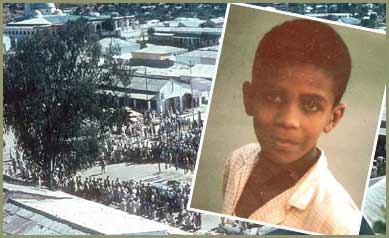
This edition of Negarit was first published on July 21, 2008. Since then, so many Eritrean associations have been created; most of them peddle the “No Boletika Zone” position in the face of the rampant injustice that Eritreans are facing. These associations have played a major role in creating the political apathy that has inflicted many Eritreans. Worse, some individuals attempt to legitimize their indifference by considering themselves as “Silent Majority.”
It was a late afternoon arrival, after an overnight flight from California, a boring connection wait at New York and on to Buffalo. From there, I drove through the beautiful, scenic landscape to Toronto, entering Canada for the first time ever. I had no idea the country was this beautiful.
I expected to see red maple trees; there were none. Could it be wrong season? I wondered why Canada would have a red maple leaf in its flag, representing its image. It should have been green.
The beauty of the Canadian landscape was matched on my return drive from Toronto to Washington DC, again my first experience in the area. I enjoyed the whole ten-hour drive. That spot of our planet might as well be the place good people go to when they die.
First things first.
By now, I have established a trend, giving my readers a report wherever I go to one Eritrean activity or another. And the last few ones were not only Eritrean, they included a Keren-related activity. And I have to report.
Thanks is due to the organizers who toiled for months to make the Keren School reunion a reality (check sweetkeren.com for more details.) Anyone who wants to organize a seamless event, you know who to hire. Maybe someday the same group of people could be approached to organize a national event, a Freedom Jamboree if you will. Heartfelt appreciations to Hassen, Bahlebi, Zeineb, Yohannes. Tesfagabir, Jimi’e, Yakob, Adil and the rest of Toronto community and others.
The organization – food, the lodging, the dancing, the laughter and the reminiscing, and the whole sequence of activities planned for the reunion – went as smooth as an air train.
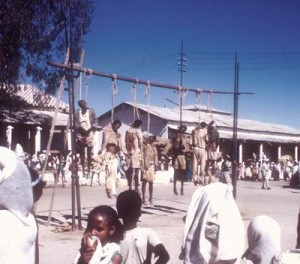 Some blessings are so profound that even time cannot overcome, a blessing even old age cannot defeat. Wrinkles on faces that had none the last time I saw them maintained the spirit I knew (and I expected). Heads that I once remembered bushy with lots of hair were now bold, an imitation of Telly Savalas’ head albeit darker. “It was the work of time,” they all said. Few seemed to notice that we beat time. We scored high in our battle against decades of separation. Our hearts prevailed. The sense of humor, love, genuine bonds of blood relations and friendships prevailed. It is known that the people of Keren have an insatiable appetite for humor, jokes and reminiscing. They have an insatiable appetite for laughter and conversation. In fact, a good portion of the reunion was spent on conversations and jokes. This would give you an idea of the quality time we spent: Eighty hours and I remember sleeping for only ten of them. It was pretty much the same with everyone else- at least the rowdy bunch I accompanied throughout the time.
Some blessings are so profound that even time cannot overcome, a blessing even old age cannot defeat. Wrinkles on faces that had none the last time I saw them maintained the spirit I knew (and I expected). Heads that I once remembered bushy with lots of hair were now bold, an imitation of Telly Savalas’ head albeit darker. “It was the work of time,” they all said. Few seemed to notice that we beat time. We scored high in our battle against decades of separation. Our hearts prevailed. The sense of humor, love, genuine bonds of blood relations and friendships prevailed. It is known that the people of Keren have an insatiable appetite for humor, jokes and reminiscing. They have an insatiable appetite for laughter and conversation. In fact, a good portion of the reunion was spent on conversations and jokes. This would give you an idea of the quality time we spent: Eighty hours and I remember sleeping for only ten of them. It was pretty much the same with everyone else- at least the rowdy bunch I accompanied throughout the time.
All right, we were noisier than an English football fan group. What the heck, fun is essential- especially when one meets childhood friends, many of them, under one roof, after decades of separation. Our rowdy group of six was crammed into a five-seat car. The music blasting loud, windows open, after mid night in the streets of Toronto. There was even a friend who developed a very unlikely taste for Amharic music; he made us listen to it all night. I would never have imagined in my life to see him acquire a taste for Amharic songs.
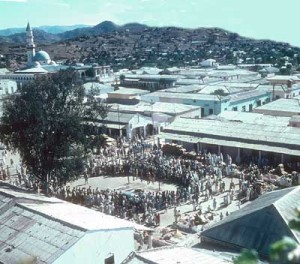 We cruised through Toronto nights aimlessly –just cruising! The closest place from any location in Toronto is an hour’s drive. Eritreans there have adapted the patience of the Beni Amer. They tell you, “it is close by” of any place, and the more you drive, the more they assure you “we are almost there.” But you end up driving for another hour. Distances have shrunk in their minds. Anyone who was frustrated by the nomads of Eritrea would understand what I mean: the nomads, used to travelling long distances would tell city boys that the next village is just over the hills, “we are almost there.” The poor city boys, used to walking only a few blocks, would be frustrated when the distance turns out to be a whole day’s journey. That was the case with Eritrean Canadians. They lost the sense of distance and time; it meant nothing to them.
We cruised through Toronto nights aimlessly –just cruising! The closest place from any location in Toronto is an hour’s drive. Eritreans there have adapted the patience of the Beni Amer. They tell you, “it is close by” of any place, and the more you drive, the more they assure you “we are almost there.” But you end up driving for another hour. Distances have shrunk in their minds. Anyone who was frustrated by the nomads of Eritrea would understand what I mean: the nomads, used to travelling long distances would tell city boys that the next village is just over the hills, “we are almost there.” The poor city boys, used to walking only a few blocks, would be frustrated when the distance turns out to be a whole day’s journey. That was the case with Eritrean Canadians. They lost the sense of distance and time; it meant nothing to them.
Back to the event…
I might have heard over a hundred jokes in three days- about half of them antique jokes with poor recycling techniques. The rest were genuinely hilarious jokes, some unfit for public consumption. But a few anecdotes, recounted by people who experienced them were the prize takers. Specially a reminiscence of an incident that happened a long time ago at the Keren school: A very tall friend had a fight with a short friend over a water tap and on who should drink first. The tall guy became mad and head-butted the short guy. But instead of hurting the shorter guy, he fell to the ground while the guy who was hit just stood there watching as if nothing happened. You need to see the two people (still the same ratio of body mass) to really enjoy the story as I and my friends did.
The formal event started with an opening speech on behalf of the organizing committee delivered by Hassen Ferej. Asfaha Weldemichael, Fatma Mahmoud Amman and Medhin Ferdinando (representing the first batch of graduates) led a solemn moment of silence in memory of those who were not among us. Asha Mussa Haj travelled all the way from Australia to attend the event. A power point presentation was given by two professionals, Dr. Weldemariam and Dr. Ogbai (I don’t know why they hate smoking). Yohannes Ferdinando and Dr. Misghina Yassin each gave a speech and other speeches followed. Ogbai’s brief reminder of a citizen’s responsibility talking about wrong practices was very much appreciated. He talked of responsibility. It was not about politics; it was about integrity.
Tesfaghabir Misghina reminded us of the role of the scouts of the Keren secondary school- the charitable deeds sponsored by the scouts and the experiences during the Ona massacre. What we lacked in pictures, was fulfilled by the photographic memories of the likes of Tesfagabir. Keep your memory in tact Tesfagabir, and thank you.
A special treat was a sketch played by Weldai Abbe- he replayed old skits that most of us watched him perform decades ago. So did Afwerki Shehen, the most famous harmonica player in Eritrea. He brought us beautiful memories, anecdotes of the old days starring Wed Cheway. Amazingly, Weldai and Afwerki are still as young as I remember them over three decades ago.
The guests of honor were our teachers, Mr. and Mrs. Rajan. Yes, Rajan who many likened to the famous Indian movie stars and tried to copy his hairstyle and accent (unusual for an Indian). Mr. Rajan forgot to bring his long hair with him to Toronto. But he delivered a speech in which he massaged the egos of all when he recounted his first teaching experience in the USA. He had discovered that unlike the students in Keren, his American students didn’t know how to calculate fractions. For a minute, everyone in the room seemed to have discovered they were smarter than they thought. As for me, I could have been one of Mr. Rajan’s students in the USA who passionately hated fractions. Then I glanced at Abraha, my school mate, who must have been doing fractions since he was breast-feeding. Rajan was right.
Then there was Mr Roger Roller (accompanied by his wife Barbara) and Mr. Kashmirlal who now lives in Canada. Unfortunately, Mr. Mahmoud, the idol of many Keren Secondary School students was absent due to health reasons. So was Mr. Omran who couldn’t secure a visa in time.
Mr. Roller and the Rajans brought along a collection of old pictures they shot in the sixties. It felt like a time capsule- Keren of the sixties. Among the dozens and dozens of invaluable pictures, two slides preserved by Mr. Roller were very moving. One was shot from the top of the spiral of Pascuzzi’s building. The other was shot from a close distance (clandestinely). The pictures are of a historical significance because they are the only documents of the incident that happened in Keren in the mid sixties: a picture of the bodies of seven martyrs hanged in the market place. I have vivid memory of the incident but as far as the date is concerned, it needs further research1.
I am almost certain the picture is the only documentation of that incident. I cannot thank Mr. Roller enough for preserving the snapshot of Eritrean history.
And there were many pictures depicting life in Keren- the good and the painful.
When Mr. Roller showed his slide collection, there were many faces in the pictures. Some who sacrificed their lives for Eritrea. Some whose whereabouts we do not know. And faces of old human monuments of Keren. Pictures of Eid celebration, Mesqel, Mariam Daari and many more. The color slides brought back nostalgic and sometimes painful memories of the time. Mr. Roller’s pictures are educational and give a glimpse of Keren in the sixties for those who are not lucky enough to have seen the future capital city of Eritrea (all right, we will vote on that once voting is allowed in Eritrea.) Anyone would have paid a good price for the hanging picture; but Roller was very generous. Again, on behalf of everyone, I thank Mr. Roller for preserving our history.
In the middle, a slide came on the screen and Mr. Roller said, “this is a picture of a kid I shot in the market.” Immediately, Tesfagabir (my boy scout patrol leader) shouted, “wedi Philips.” I looked attentively and it was my picture (probably 1966 or 1967). Though it took me some time to actually know that it was my picture, it didn’t take Tesfagibir more than a second or two to recognize my face. This was the kind of fun we had in Toronto: spending quality time with people who would recognize a picture of you when you were just a kid. If Roller put that picture on e-Bay and demanded a price, I would have paid for it.
Those who missed the opportunity to reunite this year should consider it seriously the next time it is held. I would pay anything to be in that kind of ambience, in that kind of therapy. And you all know that we need a therapy of that nature to balance the frustration caused by the oppressive regime ruling Eritrea. A regime that has damaged our social wellbeing and unity. Luckily, the Keren school reunion was a true representation of our beloved town. Genuine picture of Eritrean diversity – unlike the unrepresentative festivals of the ruling regime. All in all, about 450 people participated in the three-day events. And I am grateful for each and everyone of them for the good time.
I am grateful for the generous information given to me by many regarding the history of Keren. I am specially grateful for the helpful anecdotes supplied by Kebire.
On Sunday, at the park…
The park picnic was yet a continuation of the same, the only difference being the open air and the smell of grilled food. More fun, more conversation, more jokes, more dancing and laughing. This has to be repeated… who is hosting?
By 3 PM I had to go to yet another seminar where I was asked to give a speech in a meeting organized by no other than the energetic Moniem and his dedicated and energetic friends. Though the initial venue was locked for no apparent reason when we arrived, the organizers found another venue in just half an hour, something that can be likened to a miracle- it could have been easily cancelled. That meeting was probably the most touching. It was so full of positive energy and optimism that I wish to develop a module on How to Avoid Pessimism in our meetings. But the activities didn’t finish there.
After the meeting, we all went to a major venue that defiant Eritreans frequent- a place where freedom of expression is fully supported and where pro justice Eritreans meet: The African Delight Restaurant. I think that place should be considered the center of Toronto from where circles should be drawn, and enlarged to cover the whole city. It also serves the best food.
The next day I visited a place where I played billiards (after almost eight years). The people there were a bunch of gentlemen with clear conscience. It is very encouraging to meet such compatriots; I am confident that once these disorganized clusters of caring Eritreans come together, there will be a significant change in the way Eritreans conduct their activities. The few Eritrean Canadians who still have ties with the oppression emissary of the PFDJ should be persuaded to abandon it. Toronto should be liberated – street by street- using the tools of persuasion, common sense and appeal to the inherent sense of justice in people.
In my final evening, I had the opportunity to meet with leaders and members of Qalna, a civic-society (member of the Eritrean Global Solidarity). Qalna is a promising organization and with the help of pro-justice and pro-democracy forces of Canada, I am confident it would contribute greatly towards the struggle for justice and democracy in Eritrea. I appeal to all Eritrean Canadians to join this group and help it grow to make a significant accomplishment in the struggle. I appeal to all Eritrean Canadians to stop partisan politics and join hands to bring about change.
For political organizations to grow, they need a strong popular base from which they can solicit membership and support. A popular movement is the only way to combine resources and create a critical mass. It was along these lines that I talked to members of a few opposition organizations who understand the benefits of having a vibrant civic organization. From what I have witnessed, Canada is endowed with genuine patriots who love their people and their country. I am proud to have met many promising, intelligent and dedicated individuals. I am also happy to have finally seen close allies whom I never met in person before. I saw in them what I expected and I feel confident that the struggle for justice and democracy, ignoring the few hiccups, is all right.
I was invited to dinner parties, lunches, breakfast and the vibe was very inspiring and encouraging. I am humbled and thankful to all.
Toronto is as important (with as much Eritreans) as Washington DC. There is a challenge for Eritrean Canadians in Toronto. And where there is a challenge, there is an opportunity to become a strong pro-justice and pro-democracy force. That kind of bond and organization would easily defeat the few pockets of the oppressive regime left in the Diaspora- they have become few, ashamed for standing against their people and for empowering an unjust regime. They have no legs of reason left for them to stand on. Persuade them, discuss with them, show them the injustices and sure, if they have a figment of reason, they would abandon the oppressive regime. Encourage them to be bold. Inspire them with your actions.
Back to the Keren School reunion…
The organizers of the event, with the intention of accommodating everyone, tried hard to make the event strictly social- meaning, “non-political.” I don’t exactly understand what non-political means, but I am worried this might be a trend that associations follow. At any rate, there are two reasons for my worry. One, the fact that Keren Secondary School reunion was held in a place tens of thousands of miles away from Keren, can only be explained in political terms. Why were we in Canada instead of Keren? Why didn’t we hold the reunion in Keren? Those are legitimate questions that define the reunion as a politically influenced event. Second, you can take the people of Keren away from politika (in the parlance of some) but you cannot take the spirit of resistance and defiance (again politika to some) from the people of Keren. The struggle for justice on behalf of the oppressed should not be considered a virus we should avoid. It is a medal of honor that we should wear proudly.
My friends, my elders and all the Kerenites I meet made me feel proud. Their unequivocal rejection of oppression. Their true spirit of defiance to injustice and their clear conscience and patriotism was an assurance that we are all right, in spite of the few hiccups.
Every town in the world has its characteristics. Keren is characterized by its historical defiance to injustice. Take away that element of defiance and you are left with a dull, insignificant town. What is needed of Kerenites is not to get into “Politika”, but to be true to the traditions of defiance and rejection of injustice. It is unbecoming of us to forget how Keren and the rest of Eritrea is living under siege by an oppressive regime or ignore that fact because it is “Politika”. The true spirit of Keren abhors injustice. It despises wimps, spies and cowards. It prides itself in its history of defiance. It is a town where the ghosts of the victims of Ona and Besekdira float in the air. No such reunion should have been concluded without a stern statement condemning the oppressive regime in Eritrea and in solidarity with the oppressed. But regardless, I am proud to be a product of that great town! Please help uphold the proud and noble characteristics of Keren.
The Eritrean Muslim Council
On Saturday July, 14, 2008, I attended the conference of the Eritrean Muslim Council (EMC). This is a six-year old organization that has offered exemplary social services to Eritrean-American Muslims. The EMC has contributed greatly in the field of teaching the Koran, empowering the youth by organizing sport activities, educational and entertainment trips and mentoring. Importantly, the EMC has managed to secure burial grounds for its members– to date, there is no Eritrean-American Muslim who died in the USA and faced a difficulty in securing a burial spot. This is a great social service for an immigrant community whose dead must be buried immediately.
Among the main activities of EMC are planning of family picnics, Eid celebrations and the like. This has helped in introducing the community to each other and maintaining part of their culture through festivals and seminars, and picnics. I am sure the EMC has able, qualified people who run it and could take it to a much higher level of achievements.
In the DC event, I met many friends, some very dedicated allies in the struggle for justice and democracy (individually). I had fun and managed to meet many relatives and friends whom I didn’t meet for years. I have no serious complaint against the EMC on the social sphere, where it is doing more than what is expected from a limited-resource first generation immigrant organization. However, I am worried that the “we do not do Poletika” virus might attack the EMC. As usual, though the EMC has “Eritrean” in its name, I felt the mention of the country (let alone the situation it is going through) was avoided like a nuclear waste.
I am a Muslim and I have never been to a Muslim gathering where prayers to the jailed and the wronged victims was not offered. Doing that is remaining true to the traditions established by great religious leaders like the late Mufti Ibrahim Al-Mukhtar. Men who carry the blood of the great Eritrean religious leaders in their veins, off-springs of men who talked to the powers of the day, to the likes of the tyrant Haile Sellassie, are naturally placed to carry that burden of leading initiatives for such noble gestures. There is no excuse for forgetting to remember the victims of the oppressive Eritrean regime in any prayer. Such a noble (and religiously compulsory) gesture is the least we can offer. Not that what the oppressed Eritreans need at this time is prayers only, but the fact that the EMC didn’t make such a small gesture, didn’t go down well with me.
The EMC has an advocacy arm and I hope they take note and energize their activism alongside the social services that they are offering with admirable zeal.
People who attended the Keren reunion and the EMC event, were conscious people who do not wish evil to their people. They are people of high caliber and patriots to the bone. Individually, most of what they talked about (with evident sadness) was the sorry situation of the land of their birth, Eritrea. However, in the organizational level, the two events (Toronto and DC) seemed to have clearly raised a silent “No Boletika Zone” slogan. That gave me an idea why the oppressive regime is still surviving: those who are supposed to be defiant and vocal are not so.
1Here are the main info for those who would like to help find the exact date of the pictures:
- An old ELF book (Kefah Eritria) mentions six-bodies hanged in Keren after the Battle of Togoruba (Feb 29, 1964). This is also mentioned in Ali Mohammed Saleh’s book (Zekreyat Munadhil Eritry). The bodies in Roller’s picture are seven.
- Mr. Roller was in Keren between 1965-67; the picture was shot in that period.
- On Dec 12, 1965 six [correction: seven] combatants were martyred in a battle in Aderba (vicinity of Keren.) [the pciture above was conclusively confirmed it was of the martyrs killed in the battle Beggu/Adrba in the outskirts of Keren. Date of corrections- Sept. 28, 2008]
- Colonel Gebrekhidan was shot in June 18, 1965.
- On September 15, 1965, 21 combatants were martyred in the battle of Mehlab and their bodies was displayed in Keren (there is a widely distributed black and white picture of the 21 bodies)
I Hope the above dates and incidents might trigger memories to establish the exact date of the picture.

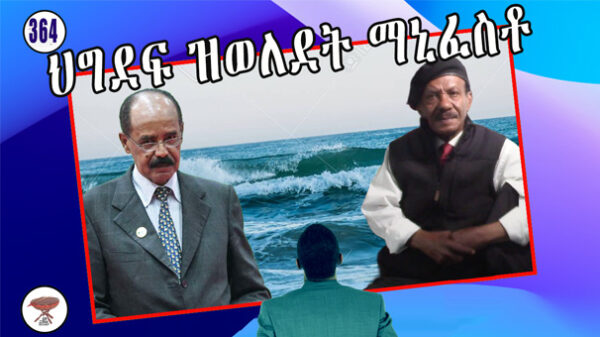
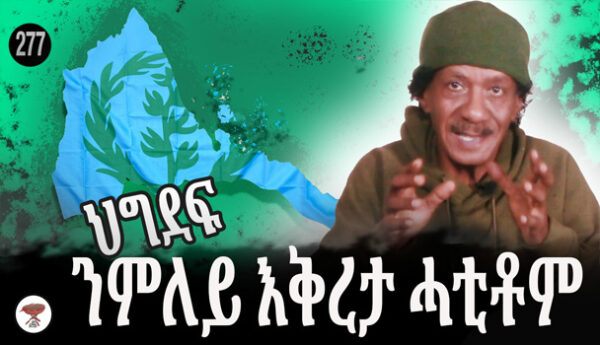
Awate Forum